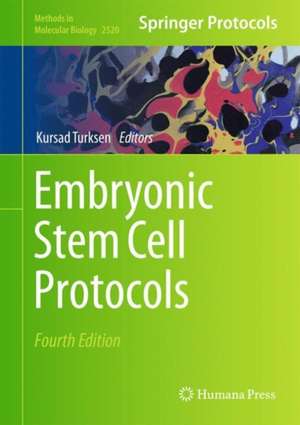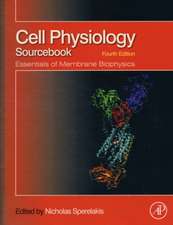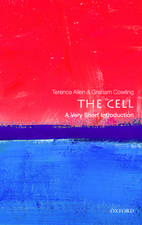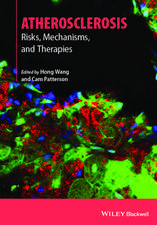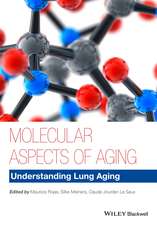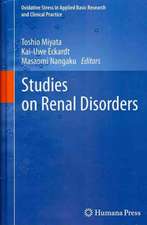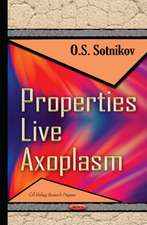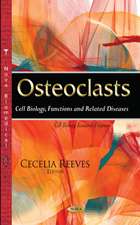Embryonic Stem Cell Protocols: Methods in Molecular Biology, cartea 2520
Editat de Kursad Turksenen Limba Engleză Hardback – 26 iul 2022
Authoritative and up-to-date, Embryonic Stem Cell Protocols, Fourth Edition serves as an ideal resource for researching mining the depths of the ESC field.
| Toate formatele și edițiile | Preț | Express |
|---|---|---|
| Paperback (4) | 597.91 lei 39-44 zile | |
| Springer – 29 mar 2019 | 597.91 lei 39-44 zile | |
| Springer Us – 26 iul 2023 | 789.52 lei 6-8 săpt. | |
| Humana Press Inc. – 19 noi 2010 | 954.31 lei 6-8 săpt. | |
| Humana Press Inc. – 19 noi 2010 | 956.99 lei 6-8 săpt. | |
| Hardback (4) | 829.69 lei 39-44 zile | |
| Springer – 2 dec 2015 | 829.69 lei 39-44 zile | |
| Humana Press Inc. – feb 2006 | 960.42 lei 6-8 săpt. | |
| Humana Press Inc. – 15 feb 2006 | 963.91 lei 6-8 săpt. | |
| Springer Us – 26 iul 2022 | 1123.80 lei 6-8 săpt. |
Din seria Methods in Molecular Biology
- 9%
 Preț: 791.59 lei
Preț: 791.59 lei - 23%
 Preț: 598.56 lei
Preț: 598.56 lei -
 Preț: 496.79 lei
Preț: 496.79 lei - 20%
 Preț: 882.95 lei
Preț: 882.95 lei -
 Preț: 252.04 lei
Preț: 252.04 lei - 5%
 Preț: 729.61 lei
Preț: 729.61 lei - 5%
 Preț: 731.43 lei
Preț: 731.43 lei - 5%
 Preț: 741.30 lei
Preț: 741.30 lei - 5%
 Preț: 747.16 lei
Preț: 747.16 lei - 15%
 Preț: 663.45 lei
Preț: 663.45 lei - 18%
 Preț: 1025.34 lei
Preț: 1025.34 lei - 5%
 Preț: 734.57 lei
Preț: 734.57 lei - 18%
 Preț: 914.20 lei
Preț: 914.20 lei - 15%
 Preț: 664.61 lei
Preț: 664.61 lei - 15%
 Preț: 654.12 lei
Preț: 654.12 lei - 18%
 Preț: 1414.74 lei
Preț: 1414.74 lei - 5%
 Preț: 742.60 lei
Preț: 742.60 lei - 20%
 Preț: 821.63 lei
Preț: 821.63 lei - 18%
 Preț: 972.30 lei
Preț: 972.30 lei - 15%
 Preț: 660.49 lei
Preț: 660.49 lei - 5%
 Preț: 738.41 lei
Preț: 738.41 lei - 18%
 Preț: 984.92 lei
Preț: 984.92 lei - 5%
 Preț: 733.29 lei
Preț: 733.29 lei -
 Preț: 392.58 lei
Preț: 392.58 lei - 5%
 Preț: 746.26 lei
Preț: 746.26 lei - 18%
 Preț: 962.66 lei
Preț: 962.66 lei - 23%
 Preț: 860.21 lei
Preț: 860.21 lei - 15%
 Preț: 652.64 lei
Preț: 652.64 lei - 5%
 Preț: 1055.50 lei
Preț: 1055.50 lei - 23%
 Preț: 883.85 lei
Preț: 883.85 lei -
 Preț: 792.16 lei
Preț: 792.16 lei -
 Preț: 423.62 lei
Preț: 423.62 lei - 5%
 Preț: 425.91 lei
Preț: 425.91 lei -
 Preț: 592.20 lei
Preț: 592.20 lei - 5%
 Preț: 345.62 lei
Preț: 345.62 lei - 19%
 Preț: 491.88 lei
Preț: 491.88 lei - 5%
 Preț: 1038.84 lei
Preț: 1038.84 lei - 5%
 Preț: 524.15 lei
Preț: 524.15 lei - 18%
 Preț: 2122.34 lei
Preț: 2122.34 lei - 5%
 Preț: 1299.23 lei
Preț: 1299.23 lei -
 Preț: 789.93 lei
Preț: 789.93 lei - 5%
 Preț: 1339.10 lei
Preț: 1339.10 lei - 18%
 Preț: 1390.26 lei
Preț: 1390.26 lei - 5%
 Preț: 752.66 lei
Preț: 752.66 lei - 5%
 Preț: 374.89 lei
Preț: 374.89 lei - 18%
 Preț: 1395.63 lei
Preț: 1395.63 lei - 18%
 Preț: 1129.65 lei
Preț: 1129.65 lei - 18%
 Preț: 1408.26 lei
Preț: 1408.26 lei - 18%
 Preț: 1124.92 lei
Preț: 1124.92 lei - 18%
 Preț: 966.27 lei
Preț: 966.27 lei
Preț: 1123.80 lei
Preț vechi: 1370.49 lei
-18% Nou
Puncte Express: 1686
Preț estimativ în valută:
215.14€ • 224.48$ • 180.34£
215.14€ • 224.48$ • 180.34£
Carte tipărită la comandă
Livrare economică 13-27 martie
Preluare comenzi: 021 569.72.76
Specificații
ISBN-13: 9781071624364
ISBN-10: 1071624369
Pagini: 363
Ilustrații: XIII, 363 p. 1 illus.
Dimensiuni: 178 x 254 mm
Greutate: 0.88 kg
Ediția:4th ed. 2022
Editura: Springer Us
Colecția Humana
Seria Methods in Molecular Biology
Locul publicării:New York, NY, United States
ISBN-10: 1071624369
Pagini: 363
Ilustrații: XIII, 363 p. 1 illus.
Dimensiuni: 178 x 254 mm
Greutate: 0.88 kg
Ediția:4th ed. 2022
Editura: Springer Us
Colecția Humana
Seria Methods in Molecular Biology
Locul publicării:New York, NY, United States
Cuprins
Dissecting Molecular Phenotypes through FACS-Based Pooled CRISPR Screens.- Feeder Free Human Embryonic Stem Cell Culture under Defined Culture Conditions.- Rat Induced Pluripotent Stem Cells-Derived Cardiac Myocytes in a Cell Culture Dish.- Transient Induction and Characterization of Mouse Epiblast-Like Cells from Mouse Embryonic Stem Cells.- High-Content Image Analysis of Spatiotemporal Proliferation and Differentiation Patterns in 3D Embryoid Body Differentiation Model.- Derivation of Multipotent Neural Progenitors from Human Embryonic Stem Cells for Cell Therapy and Biomedical Applications.- Feeder Dependent/Independent Mouse Embryonic Stem Cell Culture Protocol.- ChIP-qPCR for Polycomb Group Proteins during Neuronal Differentiation of Human Pluripotent Stem Cells.- Directed Differentiation of Human Pluripotent Stem Cells into Inner Ear Organoids.- Glycolytic Profiling of Mouse Embryonic Stem Cells (mESCs).- Replating Protocol for Human Induced Pluripotent Stem Cell-Derived Cardiomyocytes.- Hematopoietic Cell Isolation by Antibody-Free Flow Cytometry in the Zebrafish Embryo.- Human Trophectoderm Spheroid Derived from Human Embryonic Stem Cells.- Embryoid Bodies-Based Multilineage Differentiation of Human Embryonic Stem Cells Grown on Feeder-Free Conditions.- A Simple, Rapid, and Cost-effective Method for Loss-of-Function Assays in Pluripotent Cells.- Embryoid Body Formation from Mouse and Human Pluripotent Stem Cells for Transplantation to Study Brain Microenvironment and Cellular Differentiation.- A Modified SMART-Seq Method for Single Cell Transcriptomic Analysis of Embryoid Body Differentiation.- Osteogenic Differentiation from Mouse Embryonic Stem Cells.- Murine Embryonic Stem Cell Culture, Self-Renewal, and Differentiation.- Mouse Embryonic Stem Cell Culture in Serum-Containing or 2i Conditions.- Directed Differentiation of Mouse Embryonic Stem Cells to Mesoderm, Endoderm, and Neuroectoderm Lineages.- Accessing the Human Pluripotent Stem Cell Translatome byPolysome Profiling.- Genome Engineering Human ESCs or iPSCs with Cytosine and Adenine Base Editors.- Proteomic Analysis of Human Neural Stem Cells Differentiation by SWATH-MS.
Textul de pe ultima copertă
This fully updated volume explores improved and extended protocols for embryonic stem cell (ESC) research, provided with the most direct and informative methodologies currently available. The book examines how these models for cell lineage and differentiation studies have continued to mature into a critical research workhorse. Written for the highly successful Methods in Molecular Biology series format, chapters include introductions to their respective topics, lists of the necessary materials and reagents, step-by-step, readily reproducible laboratory protocols, and tips on troubleshooting and avoiding known pitfalls.
Authoritative and up-to-date, Embryonic Stem Cell Protocols, Fourth Edition serves as an ideal resource for researching mining the depths of the ESC field.
Caracteristici
Includes cutting-edge techniques Provides step-by-step detail essential for reproducible results Contains key implementation advice from the experts
Recenzii
From Reviews of the First Edition...
"...elegantly introduces tremendous methods and protocols in ES studies...one of the most useful books that I have ever read in this field..." -Cell Biology International
"...highly valuable for any scientist who wants to make a start in the exciting field but also for experienced ES cell researchers who want to widen their repertoire" -Diabetologia
"...a very informative resource for any developmental or cell biologist with an interest in developments and prospects of ES cell research" -Molecular Biotechnology
"...a useful companion volume to other more specialized ES cell books..." -Nature Cell Biology
From the reviews of the second edition:
"Volume 1 describes methods for stem cell isolation and characterization. … written for basic science and clinical researchers interested in cellular and developmental biology, biochemistry, and molecular biology. Biomedical researchers interested in bioengineering, gene therapy, oncology, and regenerative medicine will also appreciate the methods described here. … The protocols are typically organized around specific research questions, and numerous examples of research findings are presented. … a welcome resource for research scientists interested in stem cell biology." (Bruce A Fenderson, Doody’s Review Service, July, 2006)
"...elegantly introduces tremendous methods and protocols in ES studies...one of the most useful books that I have ever read in this field..." -Cell Biology International
"...highly valuable for any scientist who wants to make a start in the exciting field but also for experienced ES cell researchers who want to widen their repertoire" -Diabetologia
"...a very informative resource for any developmental or cell biologist with an interest in developments and prospects of ES cell research" -Molecular Biotechnology
"...a useful companion volume to other more specialized ES cell books..." -Nature Cell Biology
From the reviews of the second edition:
"Volume 1 describes methods for stem cell isolation and characterization. … written for basic science and clinical researchers interested in cellular and developmental biology, biochemistry, and molecular biology. Biomedical researchers interested in bioengineering, gene therapy, oncology, and regenerative medicine will also appreciate the methods described here. … The protocols are typically organized around specific research questions, and numerous examples of research findings are presented. … a welcome resource for research scientists interested in stem cell biology." (Bruce A Fenderson, Doody’s Review Service, July, 2006)
